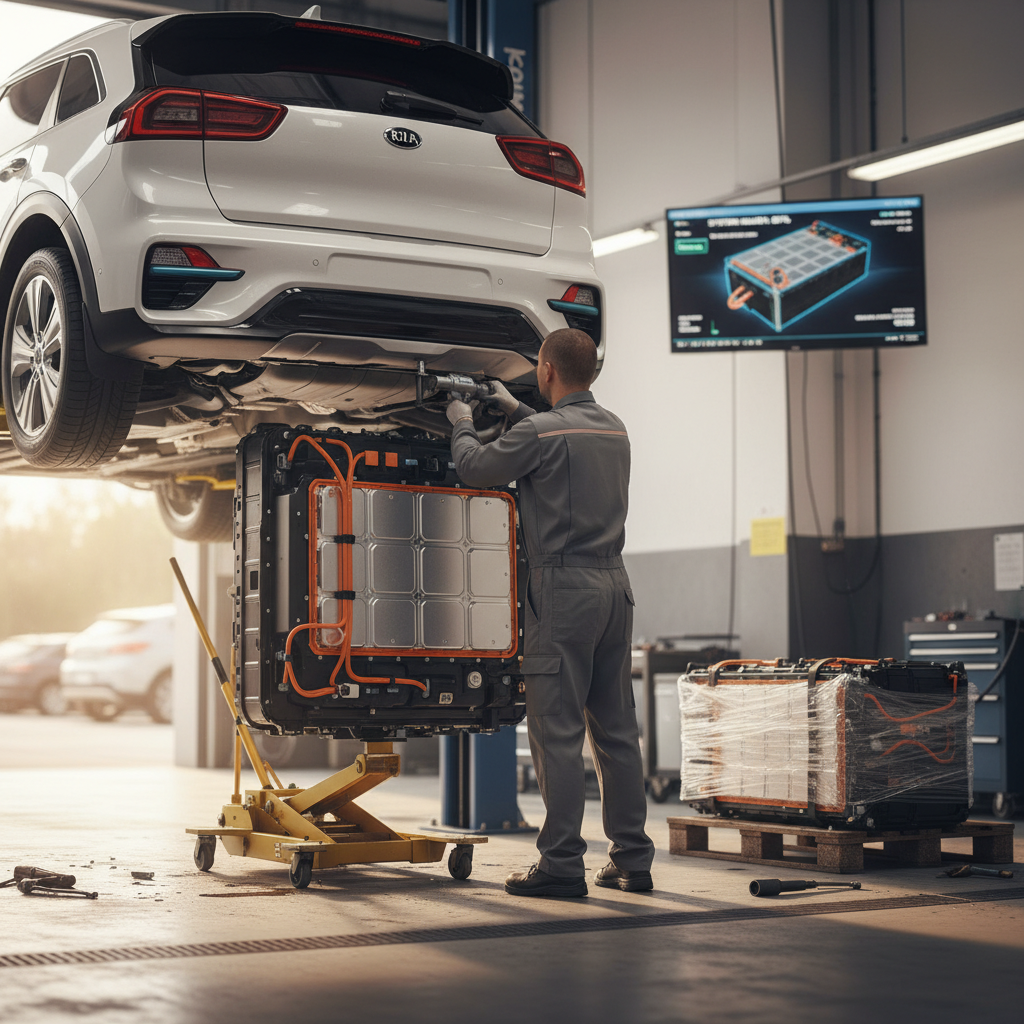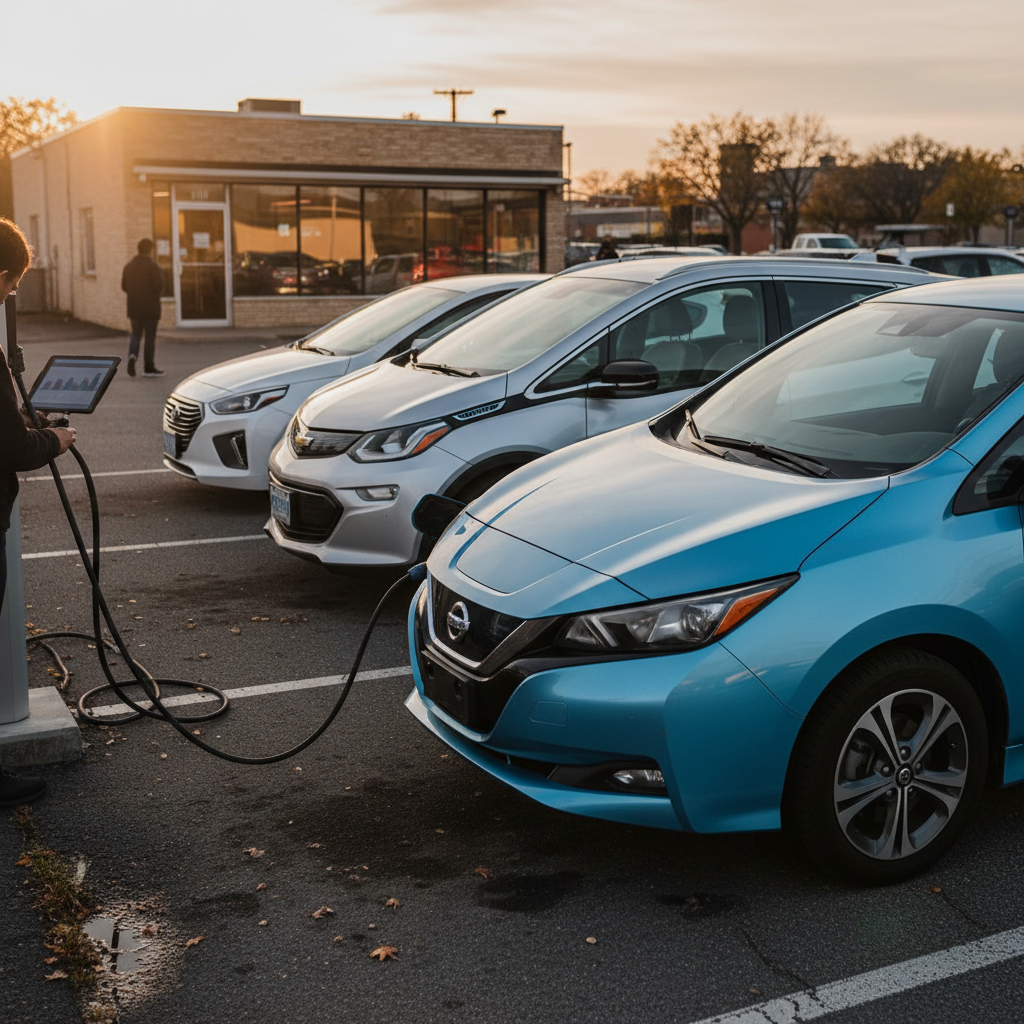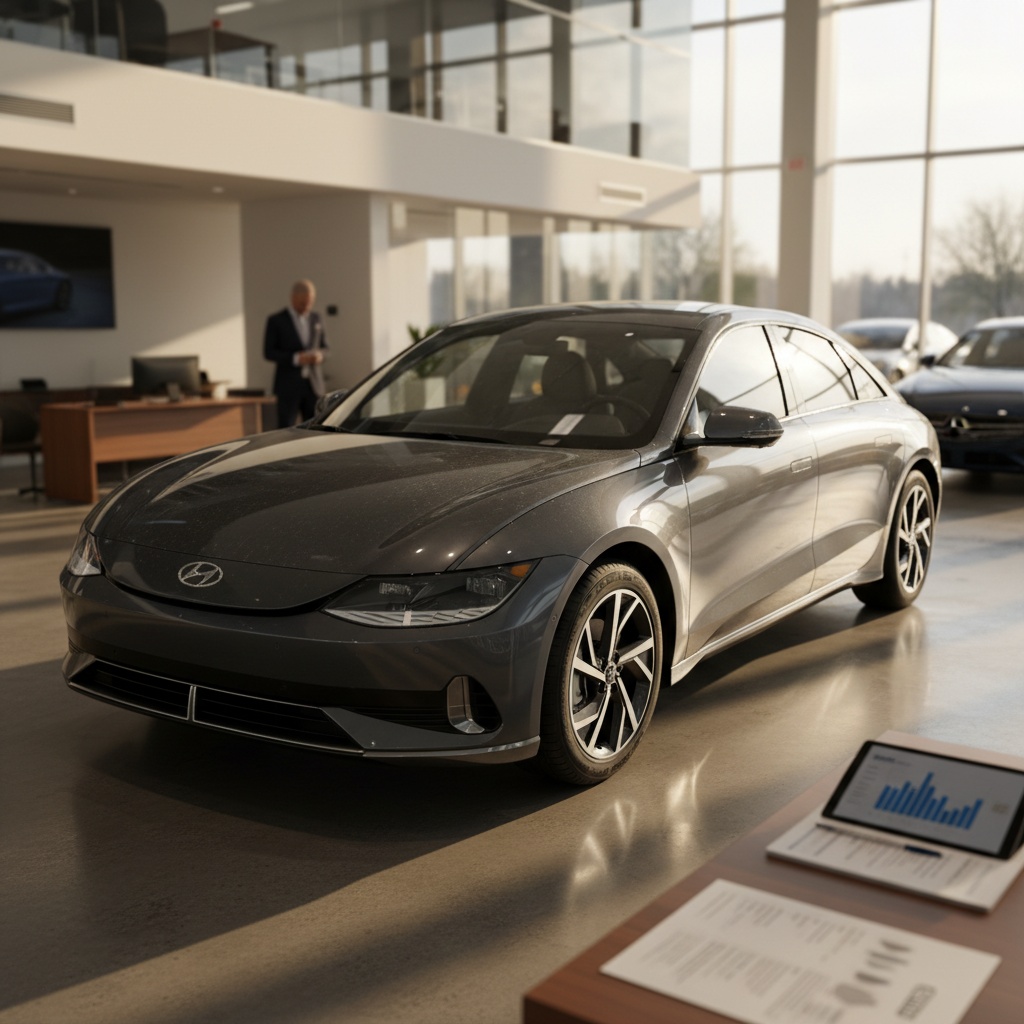If you’re hauling kids, pets, gear, or all of the above, a 7 seater electric SUV can finally replace the gas-powered family hauler. Over the last few model years, the three-row EV segment has gone from niche to genuinely crowded, with options ranging from mainstream family movers like the Kia EV9 to luxury flagships like the Cadillac Escalade IQ and Lucid Gravity. This guide walks you through the key players, the specs that actually matter, and what to know if you’re considering a used 7‑seat EV.
Quick definition
Why 7‑Seater Electric SUVs Are Taking Off
Families who would have defaulted to a gas crossover or minivan five years ago now have credible all-electric three-row alternatives. High-capacity battery packs, 800–900V architectures, and widespread DC fast-charging have made it realistic to move a big, boxy SUV with seven people without constantly worrying about range. At the same time, tax incentives and aggressive leasing have brought monthly payments for some 7‑seat EVs closer to well-equipped gas SUVs.
Snapshot: 7‑Seat Electric SUVs in 2025
Why this matters for used buyers
Current 7‑Seater Electric SUVs on the Market
Lineups and trims change constantly, but as of late 2025, these are the headline three-row electric SUVs either in U.S. showrooms or with deliveries imminent. Always confirm third-row availability on the exact trim you’re considering, because some models make it optional.
Mainstream 7‑Seat Electric SUVs
Family-focused three-row EVs that aim at Kia Telluride / Honda Pilot shoppers, not just luxury buyers.
Kia EV9
Kia’s EV9 is the first truly mainstream 7 seater electric SUV in the U.S. It offers standard three-row seating on most trims, with an optional six-seat layout that swaps the second-row bench for captain’s chairs.
- ~300 miles max range depending on trim
- Very usable third row for adults on shorter trips
- Competitive pricing compared with gas three-row SUVs
Volkswagen ID. Buzz
VW’s all-electric reboot of the Microbus arrives with standard three-row seating in U.S. spec, technically seating seven with a 2‑3‑2 layout.
- More like an electric minivan than a traditional SUV
- Great cargo volume with rear rows folded
- Retro styling, family-friendly cabin
Tesla Model Y (3-row option)
With an optional small third row, the Model Y can be configured as a 7‑seater.
- Best suited to children in the third row
- Strong efficiency and Supercharger access with adapters
- Good option if you occasionally need seven seats
Luxury and Flagship 7‑Seat EV SUVs
If you’re cross-shopping Escalade, GLS, or Range Rover, these are the electric contenders.
Cadillac Escalade IQ
A full-size, all-electric Escalade with an available three-row cabin and up to an estimated ~460 miles of range on a massive ~200 kWh battery.
- True full-size SUV space and presence
- High price and large footprint
- Ideal for long-distance luxury cruising
Lucid Gravity
Lucid’s three-row crossover targets a blend of efficiency, range, and luxury. Reviews cite up to ~450 miles of range and as much as 120 cubic feet of cargo volume with seats folded.
- Seven-passenger configuration available
- Ultra-fast DC charging; ~200 miles added in around 10 minutes on high-power chargers
- More "sleek people-mover" than rock-crawling SUV
Rivian R1S
A genuinely off-road-capable 3-row electric SUV with seating for seven and strong range.
- Standard three-row seating
- Adventure-focused suspension and off-road modes
- Great for families who camp, ski, or head off pavement
Other notable three-row EVs
- Volvo EX90 – A safety-focused, upscale 7‑seater SUV with a calm Scandinavian interior and strong driver-assistance tech.
- Mercedes-Benz EQS SUV – Ultra-luxury three-row EV with an optional third row, huge Hyperscreen, and a serene ride rather than sporty handling.
- Mercedes-Benz EQB – A compact SUV that can be optioned with a small third row. Best for kids in row three, but a useful stopgap if you occasionally haul extra passengers.
- Tesla Model X – Long-running three-row EV with Falcon Wing rear doors and an available seven- or six-seat layout.
Global or niche models
Outside the U.S. you’ll also see three-row EVs like the Audi Q5 e‑tron or BYD’s Tang EV. These expand the 7‑seat EV universe globally, and some could eventually inform future U.S. offerings.
If you’re browsing imports or non-U.S. reviews, always double-check whether that configuration is actually sold, and warrantied, in your market.

Key Specs That Matter for 3‑Row EV Families
Spec sheets are full of big numbers, but only a handful actually determine whether a 7‑seat EV will work for your life. Focus on these when you compare models or specific used vehicles.
- Realistic range at family load – EPA figures are tested with a lighter load than a fully packed road trip. Expect real-world range to drop 20–30% with seven passengers, cargo, and winter weather.
- DC fast-charging speed – Look beyond peak kW and ask how long it takes to go from 10–80% on a typical fast charger. For big three-row EVs, 30 minutes or less is ideal on a road trip.
- Third-row legroom and headroom – Numbers in inches don’t tell the whole story, but anything under ~30 inches of legroom is firmly “kids only.”
- Cargo space behind the third row – A third row you have to fold flat for every Costco run isn’t very helpful. Cross-shop cubic feet behind row three and consider roof boxes or hitch racks.
- Towing capacity – If you plan to tow a small camper or boat, note that some 7‑seat EVs are rated for 5,000–6,000 pounds, while others are much lower. Towing will significantly reduce range.
Don’t ignore gross vehicle weight
Space and Comfort: How Usable Is the Third Row?
“Seven seats” can mean anything from genuinely adult-usable space to a pair of tiny flip-up jump seats. The third row is where 7‑seat EVs differ most in day-to-day reality.
Better for adults
- Kia EV9 – Third-row legroom can approach or exceed 30 inches, and the boxy roofline helps headroom. Adults can ride back there for more than just a short hop.
- Rivian R1S – High roof and clever packaging make the third row usable for teens and adults, especially on shorter trips.
- Cadillac Escalade IQ – Built on a full-size SUV footprint, with dimensions closer to the gas Escalade than compact crossovers.
- Lucid Gravity – Emphasizes smart packaging to keep the third row workable while preserving cargo room.
Best reserved for kids
- Tesla Model Y (7-seat) – The compact rear-most seats are often described as kid-only; legroom and headroom are tight for adults.
- Mercedes-Benz EQB – A small footprint means row three is more of an emergency seat or child-only zone.
- Some luxury crossovers – Even with a third-row option, sloping rooflines and tight packaging can limit comfort for bigger passengers.
If the third row will be used daily by teenagers or adults, prioritize boxier designs and check one out in person before committing.

7‑Seater EV Comparison Table
Exact numbers vary by trim and wheel choice, but here’s a high-level look at where major 7‑seat EVs land on range, price positioning, and third-row usability. Treat these as directional rather than a substitute for checking the specific vehicle you’re buying.
Representative 7‑Seat Electric SUVs (U.S. Market)
Approximate positioning for popular three-row EVs as of late 2025. “Range” refers to best-case EPA estimates where available.
| Model | Row 3 seats | Approx. max range | Positioning | Third-row comfort |
|---|---|---|---|---|
| Kia EV9 | Standard (7-seat), 6-seat optional | ~300 mi | Mainstream 3-row family SUV | Adult-usable for moderate trips |
| Rivian R1S | Standard 7-seat | ~350 mi (varies by battery) | Adventure / off-road luxury | Comfortable for teens and adults |
| Cadillac Escalade IQ | Standard 3-row full-size | Est. ~460 mi | Full-size luxury flagship | Spacious, full-size feel |
| Lucid Gravity | Optional 7-seat | Up to ~450 mi | Tech-forward luxury crossover | Designed for adults in all rows |
| Volvo EX90 | Standard 7-seat | ~300 mi (targeted) | Safety-focused luxury SUV | Comfortable for families, good access |
| Mercedes-Benz EQS SUV | Optional 7-seat | Low 300s mi (varies) | Ultra-luxury, comfort-first | Third row best for kids/shorter adults |
| Tesla Model X | Optional 7-seat | Mid‑300s mi (varies) | Performance-oriented luxury SUV | Usable but not segment-leading room |
| Tesla Model Y | Optional 7-seat | Up to ~310 mi (5-seat trims) | Compact crossover with bonus seats | Kids only in row three |
| Mercedes-Benz EQB | Optional 7-seat | Low‑to‑mid 200s mi | Premium compact family SUV | Tight; short trips or children |
| Volkswagen ID. Buzz | Standard 3-row | High‑200s mi (targeted) | Electric minivan / people-mover | Comfortable but upright seating |
Always verify exact specs for the model year and trim you’re considering, especially if you’re shopping used.
Pair the table with a test sit
Charging, Range, and Road Trip Usage
If you’re coming from a gas Suburban or minivan, the biggest mental hurdle is usually road trips. The good news: most 7‑seat EV owners fall into a rhythm quickly once they understand how charging speeds and route planning work.
Charging questions to answer before you buy
You’ll get far more value from a 7‑seat EV if charging fits your life, not the other way around.
Can you install home Level 2?
For a big three-row EV, 240V Level 2 charging at home is close to mandatory. It turns a low battery into a full pack overnight and avoids relying on public charging for day-to-day driving.
What DC fast chargers are on your routes?
Check high-power DC stations along your regular road-trip corridors. Apps from networks like Electrify America, EVgo, and Tesla (for NACS-compatible EVs) help you see how busy sites get and whether they support 250–350 kW charging.
What’s your tolerance for 30–40 min stops?
Most three-row EVs will need a 20–40 minute DC fast-charge every 2.5–3.5 hours on the highway when fully loaded. For many families, that syncs well with meal and bathroom breaks.
Beware of slow-charging big batteries
New vs Used 7‑Seater Electric SUVs
A new 7‑seat EV gives you the latest software, the longest warranty coverage, and in many cases built-in compatibility with Tesla’s Supercharger network via NACS ports or adapters. But the used market is where three-row EVs start looking truly compelling on a value basis, especially as early Rivian R1S, Model X, and EQS SUVs enter second or third ownership cycles.
Why consider new
- Full factory warranty on battery and drive units (often 8 years or more).
- Latest driver-assistance features, infotainment, and NACS fast-charging support.
- Ability to order exactly the spec and seat layout you want.
- Potential tax credits or rebates when available, depending on income and vehicle eligibility.
Why consider used
- Significant depreciation from original MSRP, especially on luxury models.
- Broader choice of vehicles right away instead of waiting for factory order slots.
- Opportunity to see how a specific model has held up in real-world use and software updates.
- In some cases, you can step into a higher-trim or luxury 7‑seat EV for the price of a new mainstream gas SUV.
The trade-off is that you must understand actual battery health and charging performance on that specific used vehicle, not just what the brochure promised when it was new.
How Recharged Helps With Used 3‑Row EVs
A 7‑seat EV is often a family’s biggest purchase after a home. Getting the wrong one, or misjudging battery health, can be an expensive mistake. That’s where a platform purpose-built for used EVs, not just generic used cars, makes a difference.
Buying a Used 7‑Seat EV Through Recharged
What you get when you shop three-row electric SUVs on Recharged instead of a traditional lot.
Recharged Score battery diagnostics
Every EV on Recharged comes with a Recharged Score Report that includes verified battery health. Instead of guessing how much capacity an older Rivian or Model X has lost, you can see it in black and white.
Transparent, fair pricing
Recharged benchmarks every vehicle against the market so you can see whether that three-row EV is priced fairly given its mileage, options, and battery health, before you ever sign.
Financing, trade-ins, and delivery
You can line up financing, get an instant trade-in offer or choose consignment, and arrange nationwide delivery. EV specialists help you think through charging at home and on the road from day one.
Try before you commit
Checklist: What to Look For Before You Buy
Pre-Purchase Checklist for 7‑Seater Electric SUVs
1. Verify real battery health
Ask for objective battery diagnostics, not just the dash range estimate. On Recharged, that’s baked into the Recharged Score Report; elsewhere, request a health report from the brand or an independent EV specialist.
2. Sit in all three rows
Bring the whole family, including teens and car seats. Check legroom, headroom, and access in every row, and confirm that seatbacks fold the way you need for strollers, sports gear, or pets.
3. Check cargo space with all seats up
Some luxury 7‑seat EVs shrink to a tiny trunk when the third row is upright. If you routinely carry luggage or groceries with seven aboard, make sure the cargo area still works for you.
4. Confirm DC fast-charging performance
Look for real-world data or owner reports on how quickly that model charges from 10–80% and whether it throttles speed on back-to-back fast-charge sessions, important for long road trips.
5. Understand NACS and charging network access
Many 2025+ EVs include NACS ports or adapters for Tesla Superchargers. If your candidate is older, check what adapters or future software updates are available for broad network access.
6. Review warranty and service options
Confirm how much battery and drivetrain warranty remains, where the nearest approved service centers are, and whether mobile service covers common issues for that brand.
FAQ: 7‑Seater Electric SUVs
Frequently Asked Questions About 7‑Seat Electric SUVs
Bottom Line: Is a 7‑Seater Electric SUV Right for You?
If you need three rows and you’re ready to go electric, the good news is that you no longer have to compromise as much as early adopters did. Between mainstream choices like the Kia EV9, adventure rigs like the Rivian R1S, and luxury flagships such as Lucid Gravity and the Escalade IQ, the right 7 seater electric SUV can match or beat your old gas SUV on comfort and capability while dramatically lowering your fuel and maintenance bills.
The key is to focus on the fundamentals: usable third-row space, realistic loaded range, fast-charging performance, and verified battery health if you’re buying used. Start with a shortlist, put your family in the actual third row, and don’t be shy about asking for data. If you’d like a head start, browsing three-row EVs with Recharged’s battery health diagnostics, fair market pricing, and EV-specialist support can make your first 7‑seat EV feel a lot less like a leap and more like a smart step forward.



